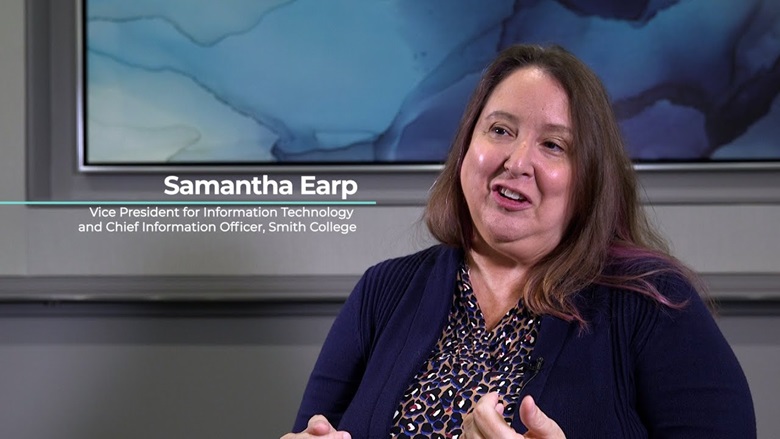New digital academic progress insights lead to a more meaningful advising experience
The path to fulfilling a college degree is becoming increasingly complex. A student’s journey toward completing a degree can change over time and be challenging for many. Students often reevaluate what degree to pursue or classes to take, refine their career interests, realize that their grades affect plans, or discover that life sometimes places speed bumps in their way.
For these reasons and more, academic advising is crucial to a student's educational experience. It can be a game changer for the student — and a key differentiator for colleges and universities.
The advising process at Smith College, one of the country's largest and oldest women's colleges, is genuinely holistic. Leadership promotes a collaborative culture that encourages every member of faculty and staff to serve as student advisers.
Each class year is overseen by a class dean responsible for that year's overall academic program, faculty members provide personalized advising to all students, and multiple resources abound, including a writing center and quantitative learning center.
The Smith curriculum is also very open, with few required courses for undergraduate degrees offered in 50 areas of study. This broad-minded approach is intentional: Smith wants students to learn about many areas of intellectual pursuit and varied career paths; students are encouraged to seek advice from as many on-campus resources as possible before declaring a major.
As a result, students can explore various degree programs and form relationships with multiple formal and informal advisers across campus. “A significant challenge for us is ensuring that people have access to data that can better support students,” said Samantha Earp, vice president for information technology and chief information officer at Smith College. “As we think about the ways we use technology over the next couple of years for faculty, staff, and students, there is a lot of emphasis on advising.”
Adopting a Digital-Forward Approach to Innovate Advising
In 2019, Smith collaborated with Huron to implement Workday Student, a next-generation student information system, after selecting Workday as its enterprise resource planning (ERP) platform five years earlier. Before bringing Huron on board, there were no technical resources to support Smith’s advising process. For example, records of a student’s overall progress toward fulfilling their degree requirements, also called degree audits, were paper-based.
To place these records in the cloud and make them accessible to students, faculty, and staff in real time, Smith used the academic progress functionality in Workday Student to create an electronic academic progress report. A vital tool for academic planning and course selection, the report assists students and advisers in navigating curricular requirements and tracking students’ advancement by integrating the degree requirements in the Smith College Catalog with a student's coursework in Workday.
The goal of the academic progress report is to strengthen the relationship between adviser and student and improve the academic experience. “With these new tools, we can provide a lot more context so that students can move beyond the mechanical aspects of degree completion, such as which courses to register for, to meaningful conversations about the path a student might take and what's most beneficial to them,” added Earp.
Together with Huron, we have achieved important goals around ensuring every student has the right information and advice at the right time.”
— Samantha Earp, Vice President for Information Technology and Chief Information Officer, Smith College
With such a transformative goal in sight and information on up to 1,000 courses to input, it was important for Smith to establish priorities for the rollout. “Starting from scratch, we worked with the Smith project team to target functionality and establish a timeline [that aligned with] the academic calendar," said Raghu Chagarlamudi, managing director at Huron. This included a deep dive into understanding the student journey from the first year through graduation and creating a student experience panel to guide key milestones and test and refine the academic progress report.

A Culture Shift
Working closely with students and campus leadership, Huron discovered that paper-based forms were ingrained in the Smith culture. For example, students must complete a Program of Study Declaration Form to declare a major. Taking a photo in front of the school gates while holding a completed form with multiple wet signatures from various advisers was a beloved ritual for Smith students.
In establishing a new process for academic progress reports, Huron collaborated with the Smith change management team to ensure buy-in from faculty and staff and communicate the merits of electronic delivery. Only one graduation cycle into this transition, Smith reports that the feedback from students, faculty, and staff has been very positive, and they continue to refine the process to better suit student needs.
“Cultural transformation is an exciting outcome of change,” added Earp. “We look forward to seeing how the new advising tools evolve and what new student rites and rituals arise from going digital.”
